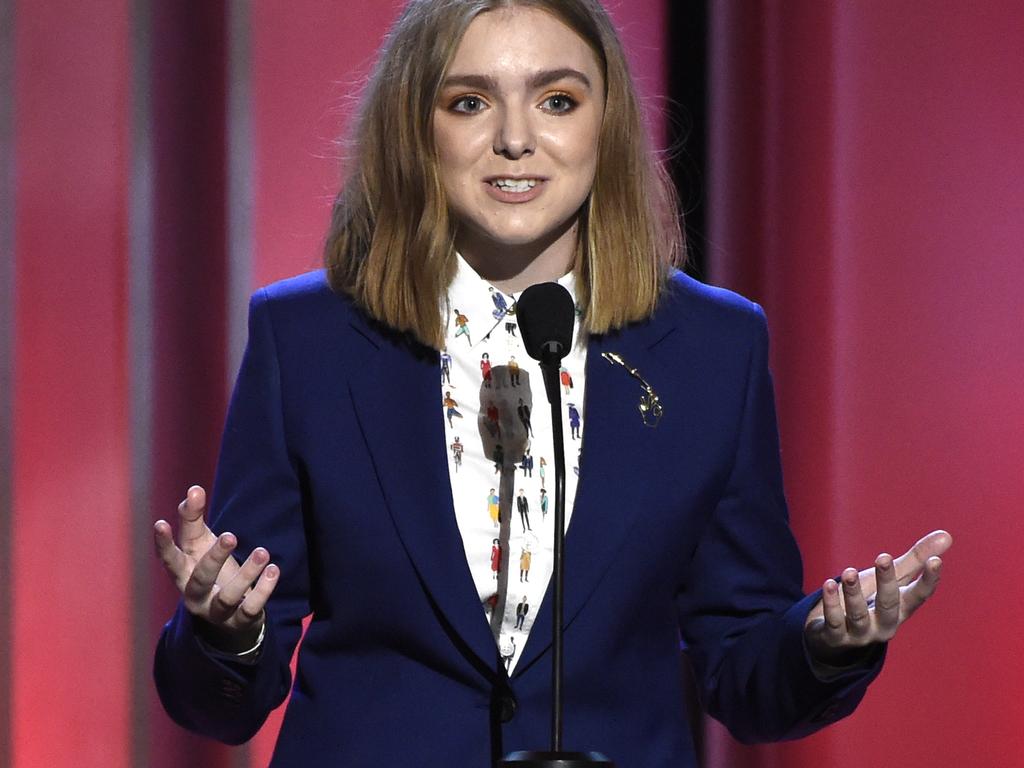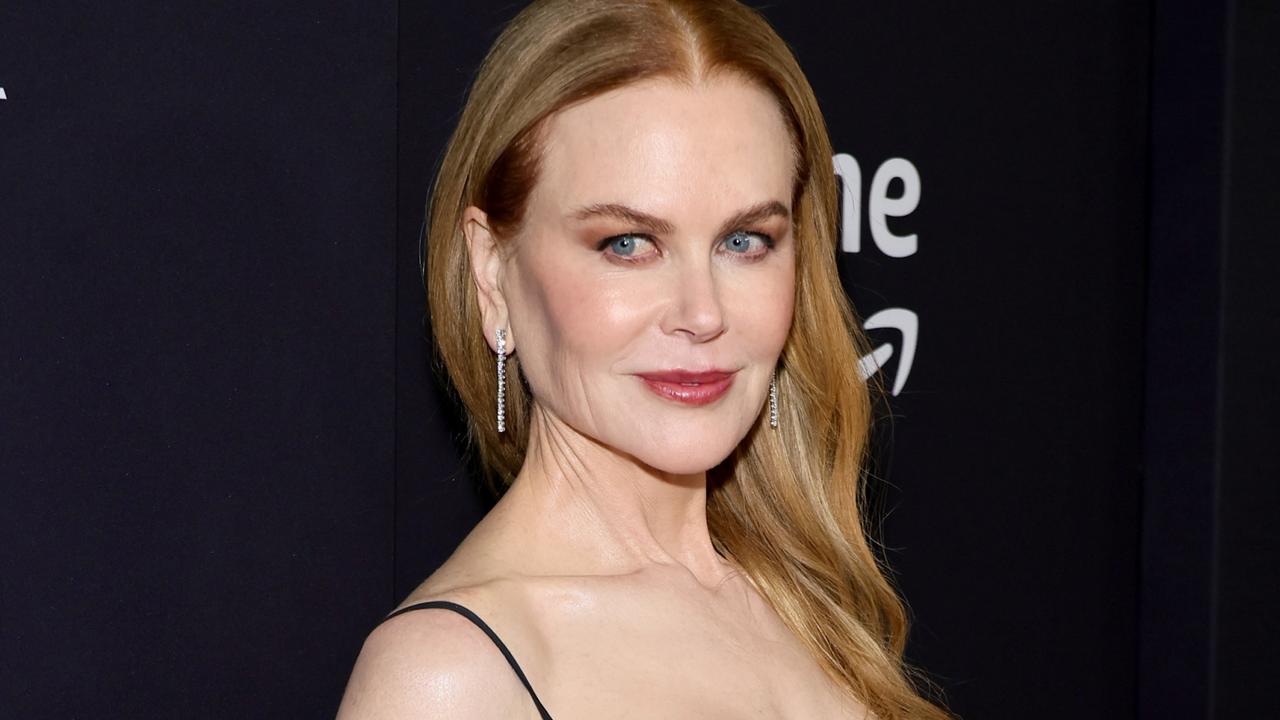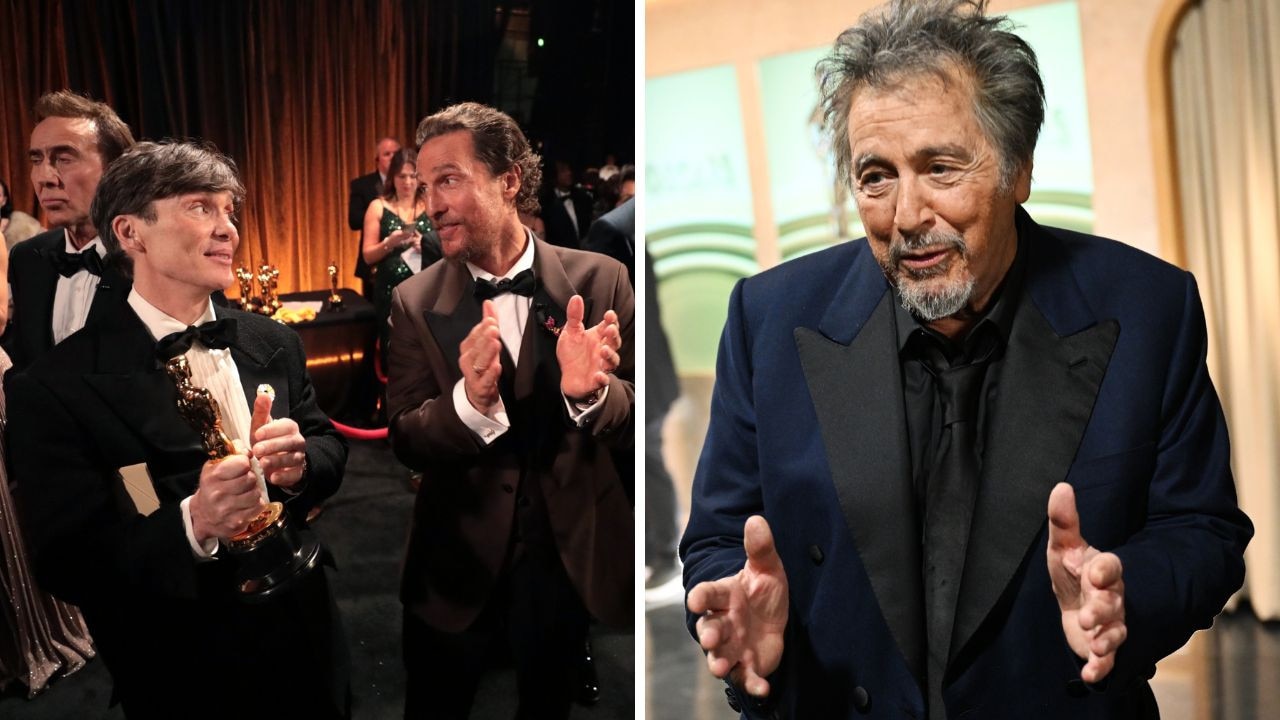What you missed about this Oscars moment
Olivia Colman endeared herself to the world with her delighted acceptance speech — but her Best Actress win revealed something even more surprising.

Just over ten years ago, I sat with Olivia Colman in the backyard of her south London flat as she insisted her British Comedy Awards nomination was just a “kind gesture”.
Then 34, she was appearing in popular comedy series Peep Show alongside the more famous David Mitchell and Robert Webb, and was doing the interview with me — a student — out of the goodness of her heart.
The endearingly modest actress insisted people didn’t watch the show for her, that she was “terrified” about speaking loud enough in an upcoming stage play and that her ambition for the future was to try “everything — if anyone will let me”.
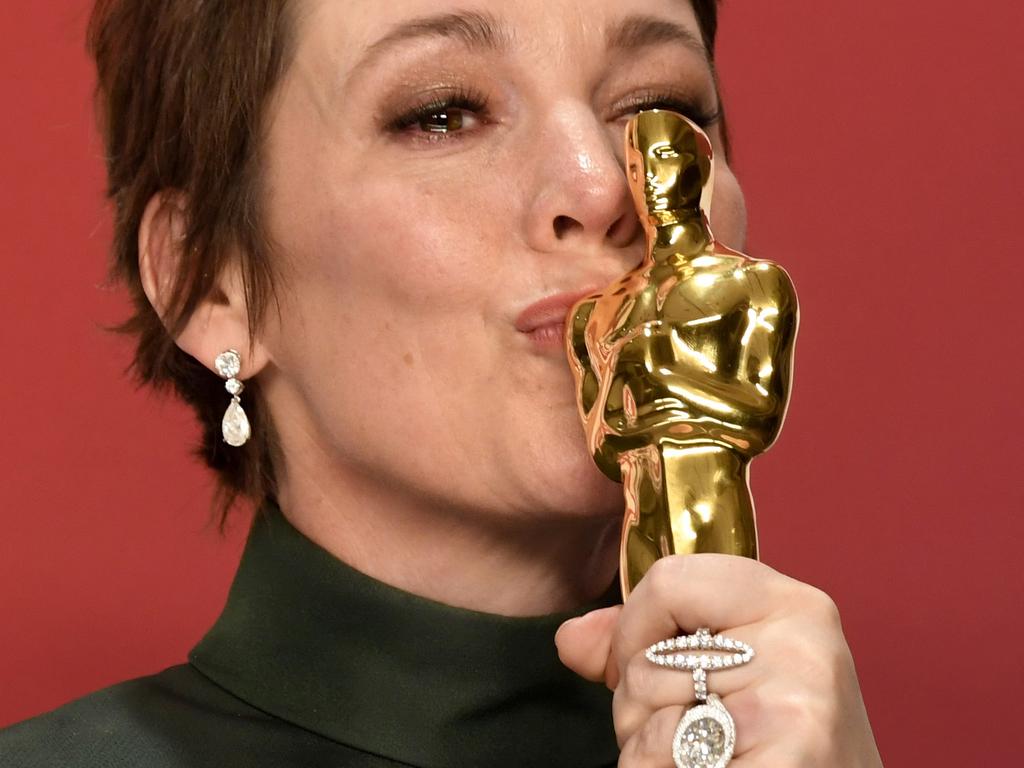
That awards show, she said, would simply be “a great night out” — and when she was named Best Actress at the Oscars yesterday, it was clear she is still exactly the same person. The Favourite star was openly thrilled, practically apologising to fellow nominee and her “idol” Glenn Close, who has still never won an Academy Award. “It’s genuinely quite stressful,” she began her speech to a ripple of laughter. “This is hilarious. I got an Oscar.
“Any little girl who’s practising your speech on the telly, you never know. I used to work as a cleaner and I spent quite a lot of my time imagining this.”
But Colman’s win was more than just a well-deserved acknowledgment of this talented and humble actress. It marked a seminal moment for an old and fusty institution that has still not made the progress it should have after the #OscarsSoWhite reckoning of recent years.
The Academy again made a host of missteps in venerating the problematic Green Book and distinctly average Bohemian Rhapsody. Spike Lee walked out after the former’s Best Picture triumph, commenting that “the ref made a bad call”, while Get Out director Jordan Peele refused to clap for a movie that has been labelled regressive and even racist.
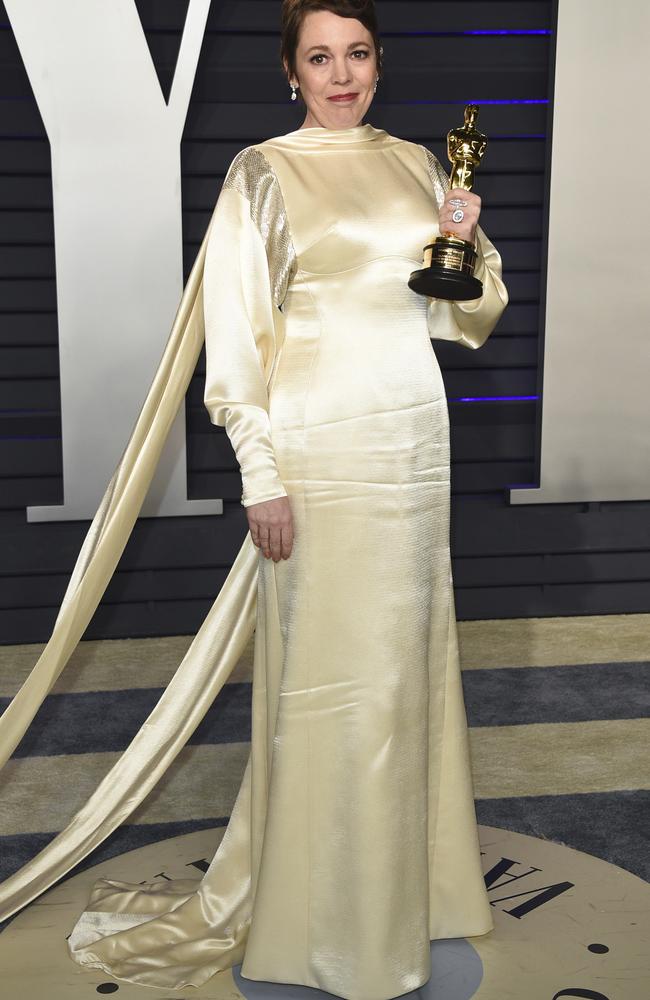
For women in Hollywood, who were last year focused on the #TimesUp movement against sexual harassment and assault, Colman’s win was evidence of a step forward.
We are entering a time when a determinedly “normal”, unstarry woman can win an award based purely on a brilliant performance. “I honestly feel like a friend of mine has won,” tweeted one Londoner on Twitter, speaking for everyone who adores the Broadchurch star as much as co-star Emma Stone clearly does.
No one seemed to expect the win less than Colman herself. She was pronounced a “charming human being” and “a joy” as she delivered her emotional thanks, a few self-deprecating jokes and blew a raspberry when the wrap-up music began. “I would have watched her ramble on for at least another hour,” observed one viewer.
And Colman — about to star as the Queen in season three of The Crown — was not the only quietly gifted woman to receive the recognition they deserved at these Oscars. The night opened with Hannah Beachler and Ruth E. Carter making history as the first African-American women in the categories of production design and costume design respectively. Both worked on Black Panther, a box office smash celebrated for bringing much-needed diversity to the superhero genre, with wild success.
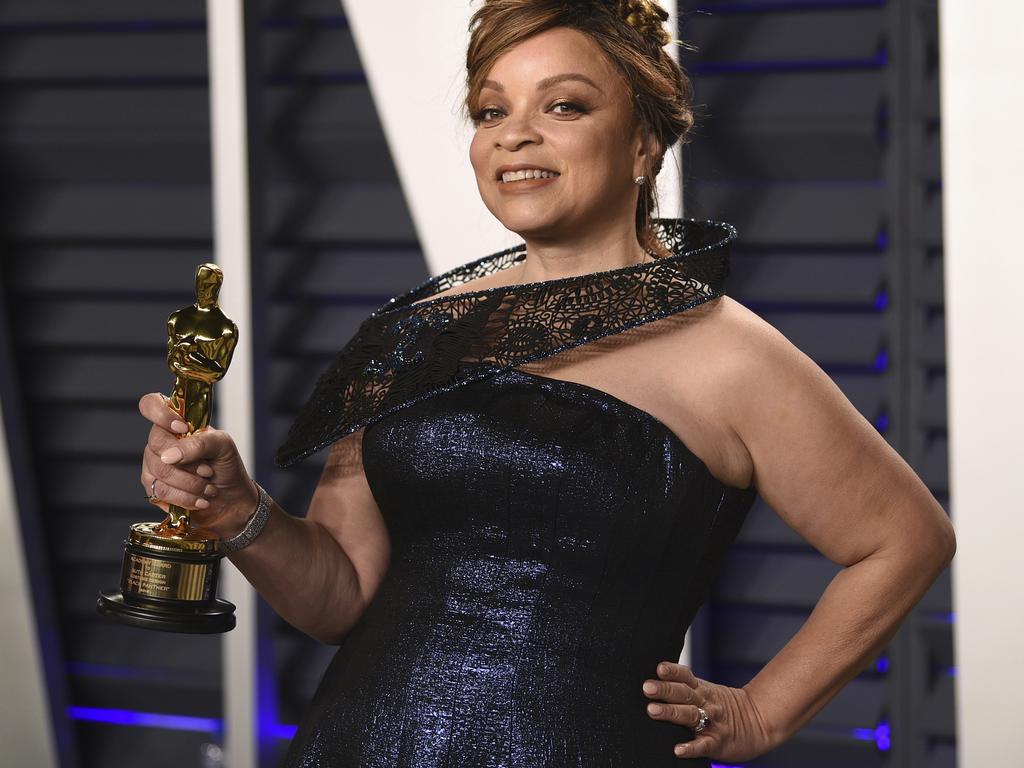
“I give the strength to all of those who come next, to keep going, to never give up,” said a tearful Beachler, after fumbling to bring up her speech on her mobile phone. “And when you think it’s impossible, just remember to say this piece of advice I got from a very wise woman. I did my best, and my best is good enough.”
Carter, who started out on Spike Lee’s School Daze in 1988, said: “Marvel may have created the first black superhero, but through costume design, we turned him into an African king. It’s been my life’s honour to create costumes.
“Thank you for honouring African royalty and the empowered way women can look and lead on screen.”
Lee himself finally gained overdue recognition in winning Best Adapted Screenplay for BlacKkKlansman, almost 30 years after the Oscars controversially chose Driving Miss Daisy for Best Picture over Do the Right Thing — a move echoed in Green Book’s troubling triumph.
The New York director thanked #OscarsSoWhite movement leader April Reign for “opening up the Academy to make the Academy look more like America”, on a night when Regina King won for her role in If Beale Street Could Talk, Alfonso Cuaron for Roma and Cicely Tyson for Spider-Man: Into The Spider-Verse.
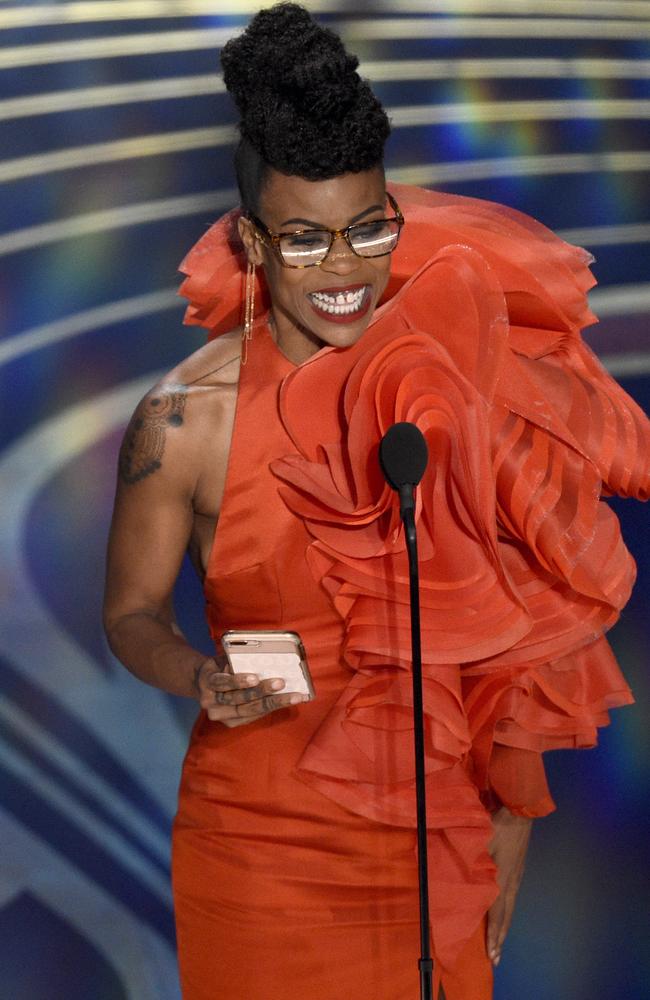
But despite these bright spots, the Oscars is still far from where it should be in terms of diversity. Asked on the red carpet whether it was still an issue, Ms Reign replied: “My answer is absolutely yes. Until we are no longer having these conversations about firsts in 2019.”
She later noted that the Academy had “committed to doubling the number of people of colour and doubling the number of women, I think that’s why we’re seeing some of the firsts.”
Colman’s moment was key to this change. The Favourite had 10 nominations, the joint-highest number, but finished the night with just one win.
Before Colman’s surprise victory broke the pattern, viewers remarked that the movie’s losses felt all too familiar.
In recent years, acclaimed female-centred films Lady Bird and Carol missed out on Oscars. This year, the excellent Eighth Grade did not receive a single nomination. If it had had a male lead, some speculated, perhaps it would have done.
Colman, who has in the past requested that punchlines be shared more evenly between the men and women when starring in a sketch show, seemed to speak for ordinary women in front of the still largely white, male Academy.
It was a moment we needed on an imperfect night, reminding us there is hope for the future.
